Analytical skills Normal Reading Fiction Worksheets for Ages 3-9
5 filtered results
-
From - To
Elevate your child's reading experience with our "Analytical Skills Normal Reading Fiction Worksheets" designed specifically for ages 3-9. These engaging worksheets help young learners develop essential analytical skills through interactive fiction-based activities. Children will explore story elements, enhance comprehension, and improve critical thinking by analyzing characters, plots, and settings. Fun exercises encourage creativity while strengthening their ability to interpret diverse texts. Perfect for early childhood education settings or homeschooling, our worksheets foster a love for reading and stimulate cognitive development. Unlock your child's potential and empower them as confident readers with our thoughtfully crafted resources!
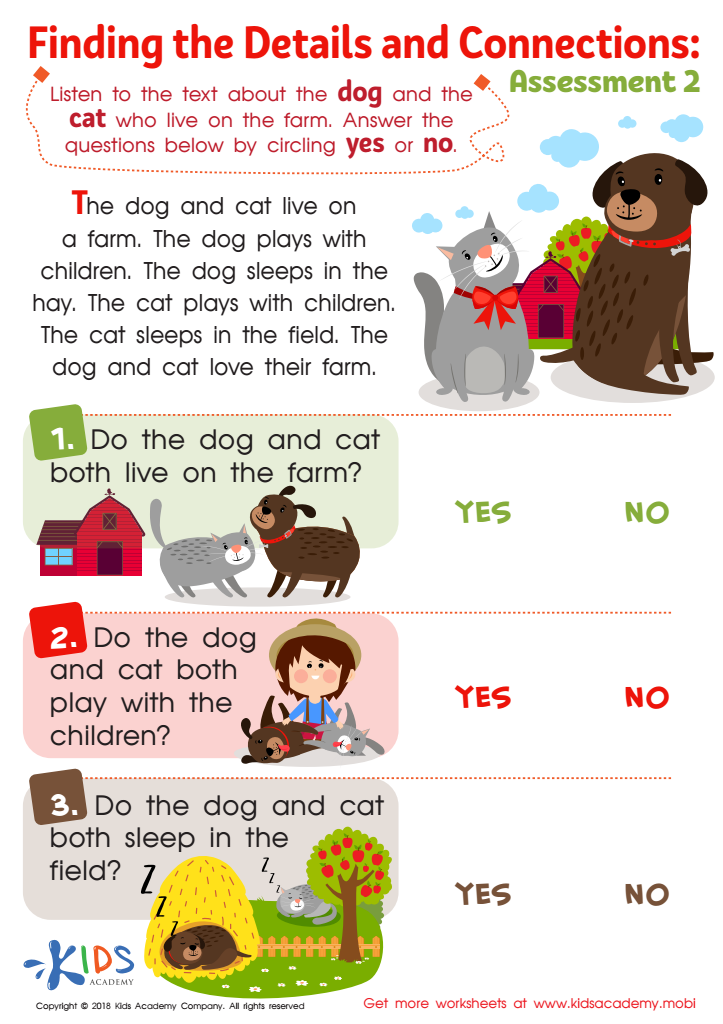

Finding the Details and Connections: Assessment 2 Worksheet
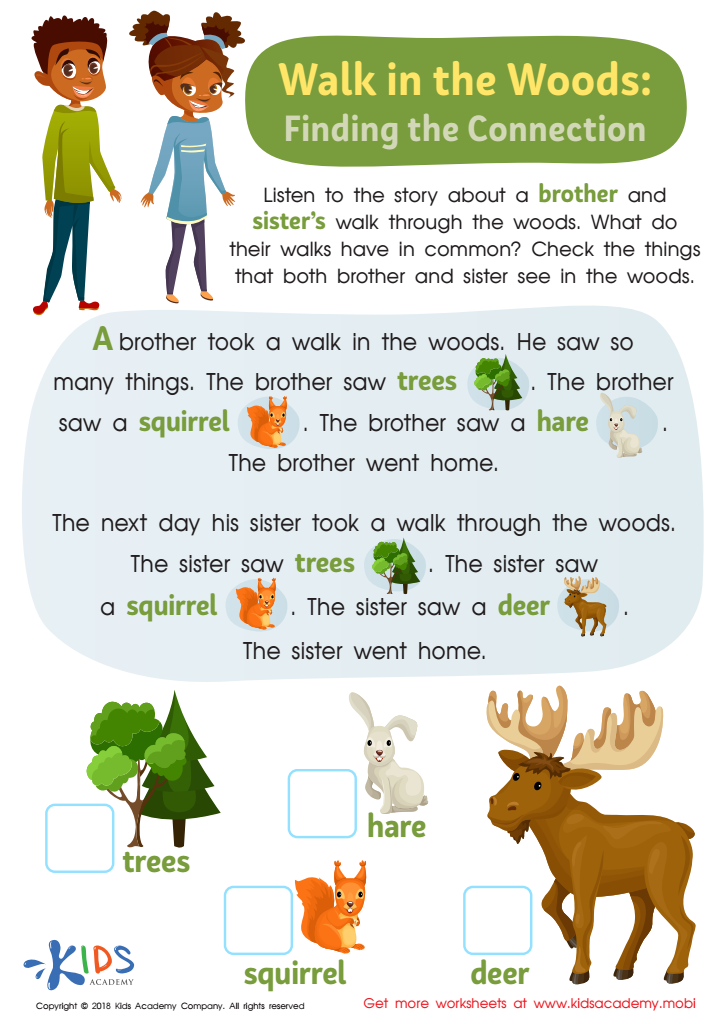

Walk In the Woods: Finding Connections Worksheet
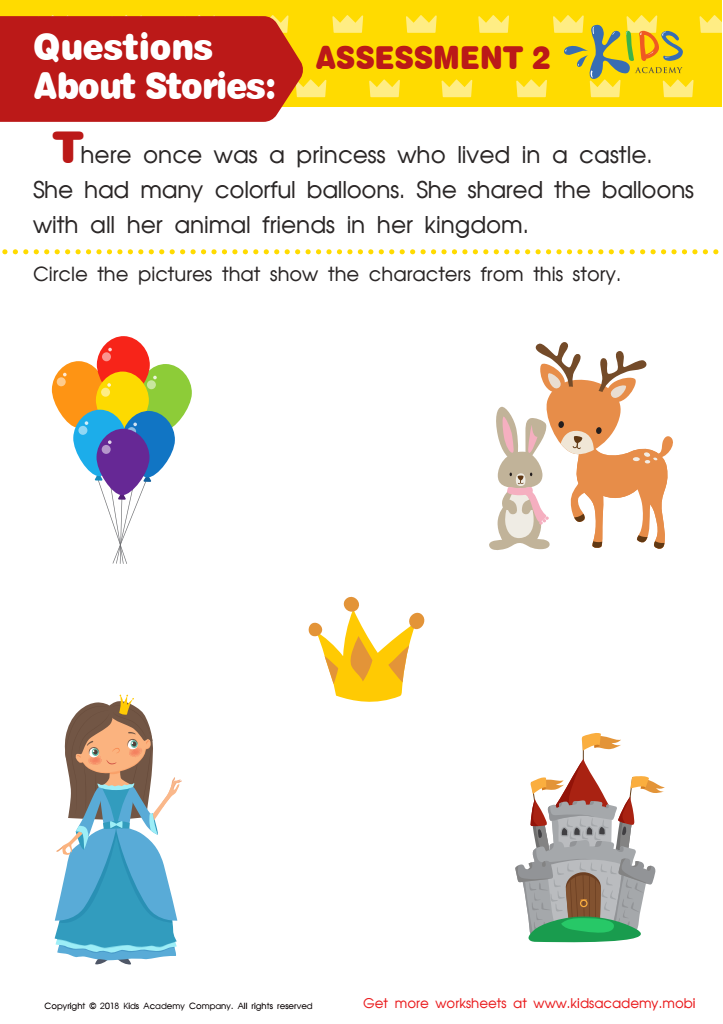

Questions About Stories: Assessment 2 Worksheet
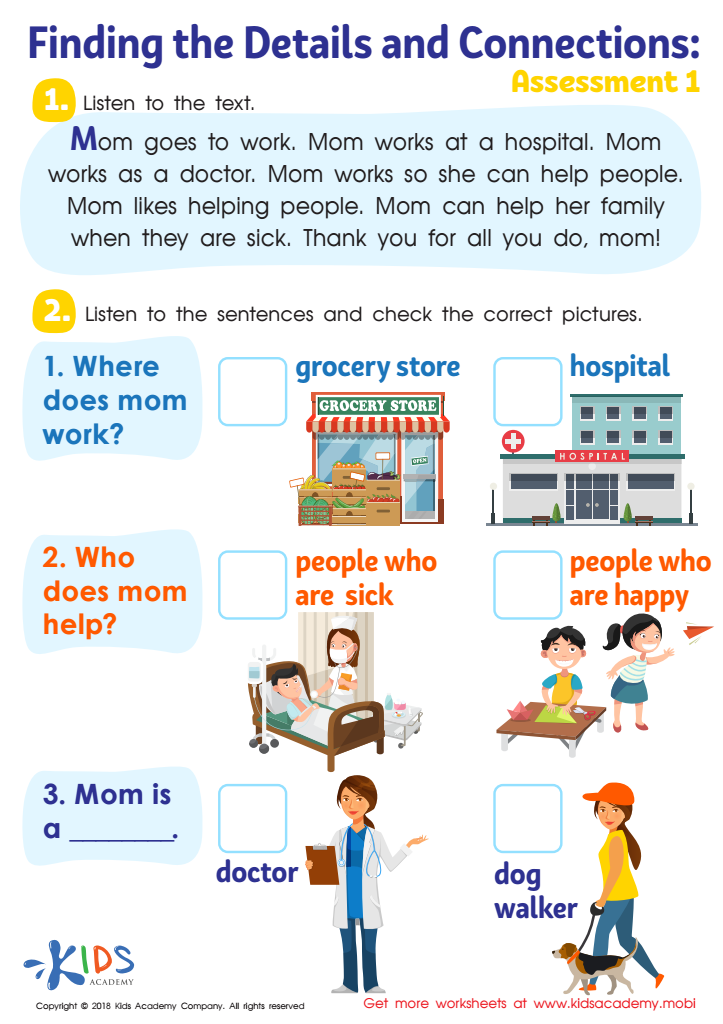

Finding the Details and Connections: Assessment 1 Worksheet
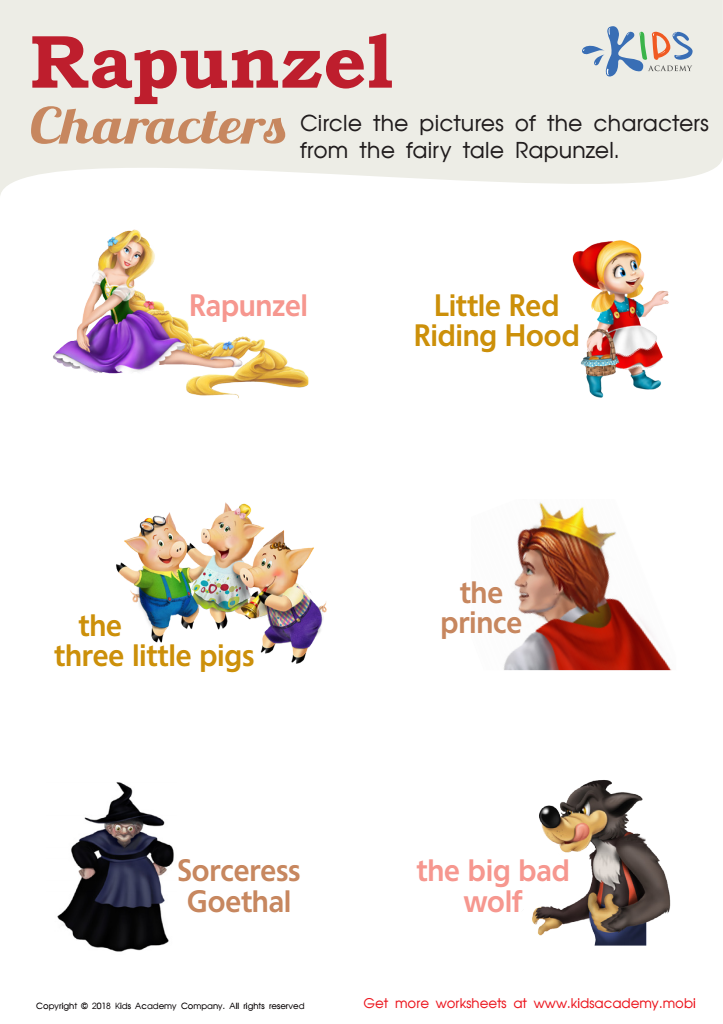

Rapunzel Characters Worksheet
Parents and teachers should prioritize analytical skills through normal reading of fiction for children ages 3-9 for several compelling reasons. Firstly, analytical skills are fundamental for critical thinking, enabling children to interpret information, make connections, and solve problems as they grow. Engaging with fiction encourages them to consider different perspectives, understand complex concepts, and enhance their imagination—crucial elements for cognitive development.
Reading fiction also promotes vocabulary growth and comprehension, providing a rich context for children to practice these skills. By discussing characters, plots, and themes, children learn to analyze intentions, motivations, and outcomes, which builds their ability to think critically in various contexts beyond literature. Additionally, storytelling often presents moral dilemmas and challenges that prompt children to evaluate choices and consequences, offering invaluable lessons in decision-making.
Finally, regular reading fosters a love for literature, making learning enjoyable and engaging. As children become competent readers, their confidence surges, leading to a positive feedback loop that encourages further exploration and analytical thinking. Thus, parents and teachers play a pivotal role in nurturing these essential skills through enriched reading experiences, ensuring children are well-prepared for academic success and thoughtful citizenship in a diverse world.

 Assign to My Students
Assign to My Students









.jpg)









